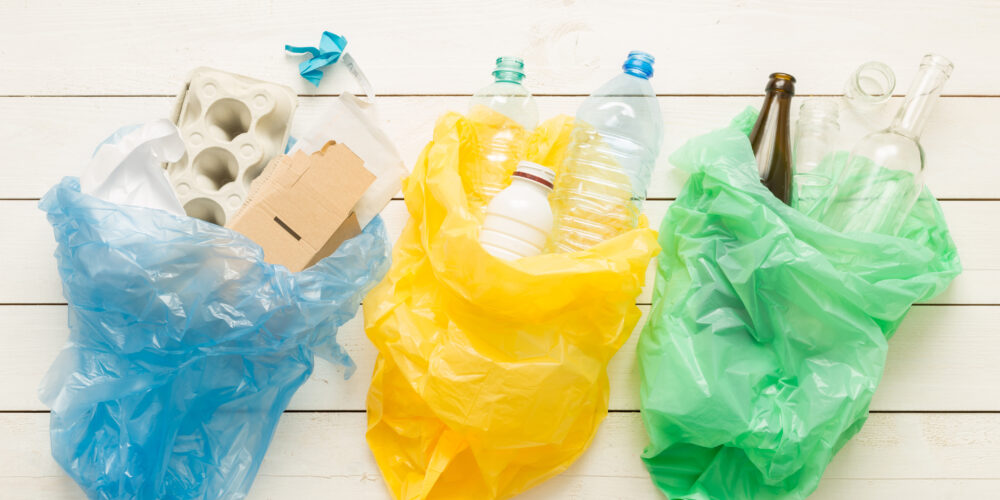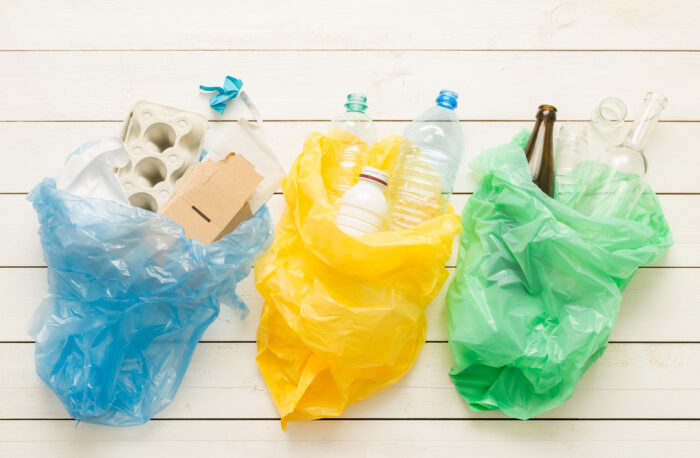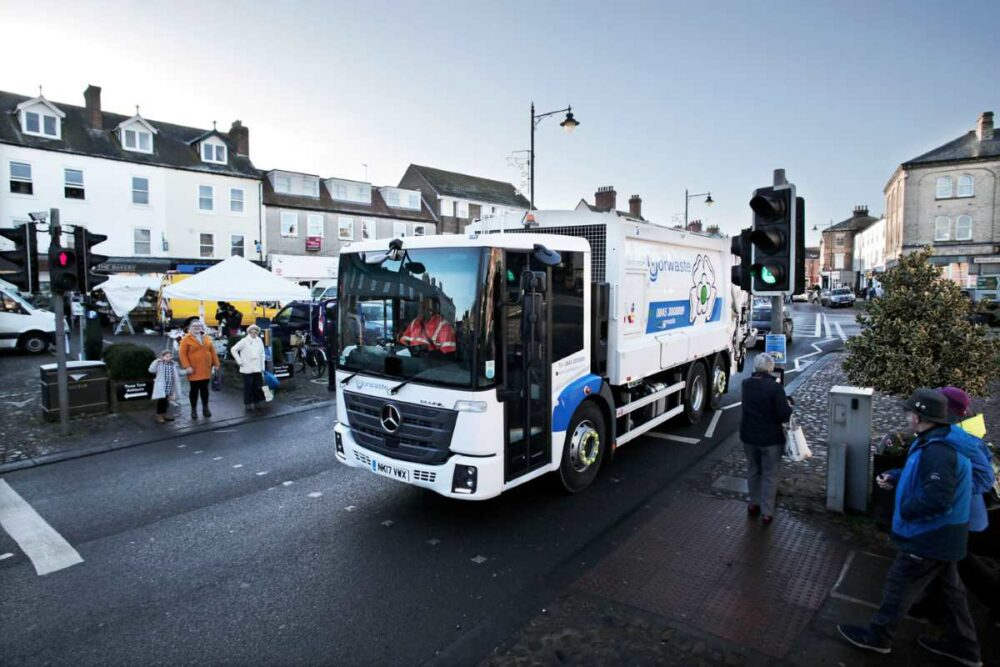What is the Government’s Simpler Recycling Plans?
What is Simpler Recycling (And is it actually simpler?)
In recent years, our country’s recycling rate has plateaued at around 42% to 44%. Therefore, on 21st October 2023, the government announced its Simpler Recycling plans for England.
The aim is to increase the country’s recycling rate by simplifying the recycling process.
What exactly does this Simpler Recycling plan entail?
The government is planning to unify what is being recycled across the country.
Have you ever moved areas? Or talked to someone from a different area? You might notice there are different recycling rules, which is baffling as we all live in the same country!
With the Simpler Recycling plan, people will be able to recycle the same materials anywhere in the country.
North or south. Household or commercial. People would no longer need to check what the council accepts.
The waste materials to be collected are:
- Glass
- Metal
- Plastic*
- Paper and card
- Food
- Garden
- Residual
*Plastic films will also be collected from 31st March 2027
7 waste streams?! Does that mean we need 7 bins at home?
No. The government stated that it is not their intention to force every household and business premises to place 7 bins at their locations.
A lot of local authorities collect dry recycling together and segregate them in the facilities. Therefore, the government has proposed offering residents to choose one of the three waste containers – bins, boxes or bags – to contain their:
- Dry Recycling
- Food Waste
- Residual Waste (Non-recyclable waste)
Residents will also be offered an optional fourth container for garden waste.
All waste will be collected weekly aside from residual waste, which will be collected fortnightly.
I’ve never used a food bin. Is the food waste collection mandatory?
Yes. The Simpler Recycling plan also means that weekly food waste collection will become mandatory for both households and businesses/non-domestic premises. The proposed timeline is as follows:
Businesses/Non-domestic premises: 31st March 2025
Households: 31st March 2026
Micro-firms (organisations with less than 10 full-time workers): 31st March 2027
That sounds well-intentioned and all but does it actually work?
There are both positive responses and concerns from the waste industry and councils surrounding the Simpler Recycling plans by the government:
Mandatory Food Waste Collection
The plan of mandatory food waste collection is very welcomed by the waste industry in general.
Charlotte Morton OBE, Chief Executive of Anaerobic Digestion and Bioresources Association (ADBA) said, “About time! – was our first reaction as separate food waste collections have been on the agenda for many years now, with the deadlines repeatedly delayed.”
She also said the plan means that Local Authorities and anaerobic digestion operators can now “plan with confidence to put contracts and infrastructure in place”.
However, there are district councils that expressed concerns about the implementation and operation of food waste collections.
“The government’s Simpler Recycling plan will mean significant service changes at many councils.” Cllr Sarah Nelmes, environment spokesperson of District Council Network said. “New waste lorries, bins and, in some cases, larger depots will be required, all at great expense. The funding currently on offer is nowhere near enough.”
She commented that food waste collections would be “unrealistic unless councils are funded for the full costs”.
Paper and Card Segregation
The Confederation of Paper Industries (CPI) said the decision to commingle paper and card with other recycling is deeply disappointing.
It used a Freedom of Information request to take a look at Defra’s data. The result showed that the contamination rate can be as high as 15.5% and 12% approximately for the paper and card streams. When collected separately, the contamination rate would drop to only 1.1% and 4% respectively.
Paul Sanderson, Chief Executive of The Recycling Association expressed his support for the Simpler Recycling plans as it can “end the confusion around what can and can’t be recycled”.
“But it is disappointing that local authorities in England will be able to commingle this material, as we would have preferred paper and cardboard to be kept separate as a minimum. That would have avoided contamination and enabled better quality of paper and cardboard, but also the other materials where paper can act as a contaminant.”
The government’s response to the consultation outcome regarding Simpler Recycling can be read here.


